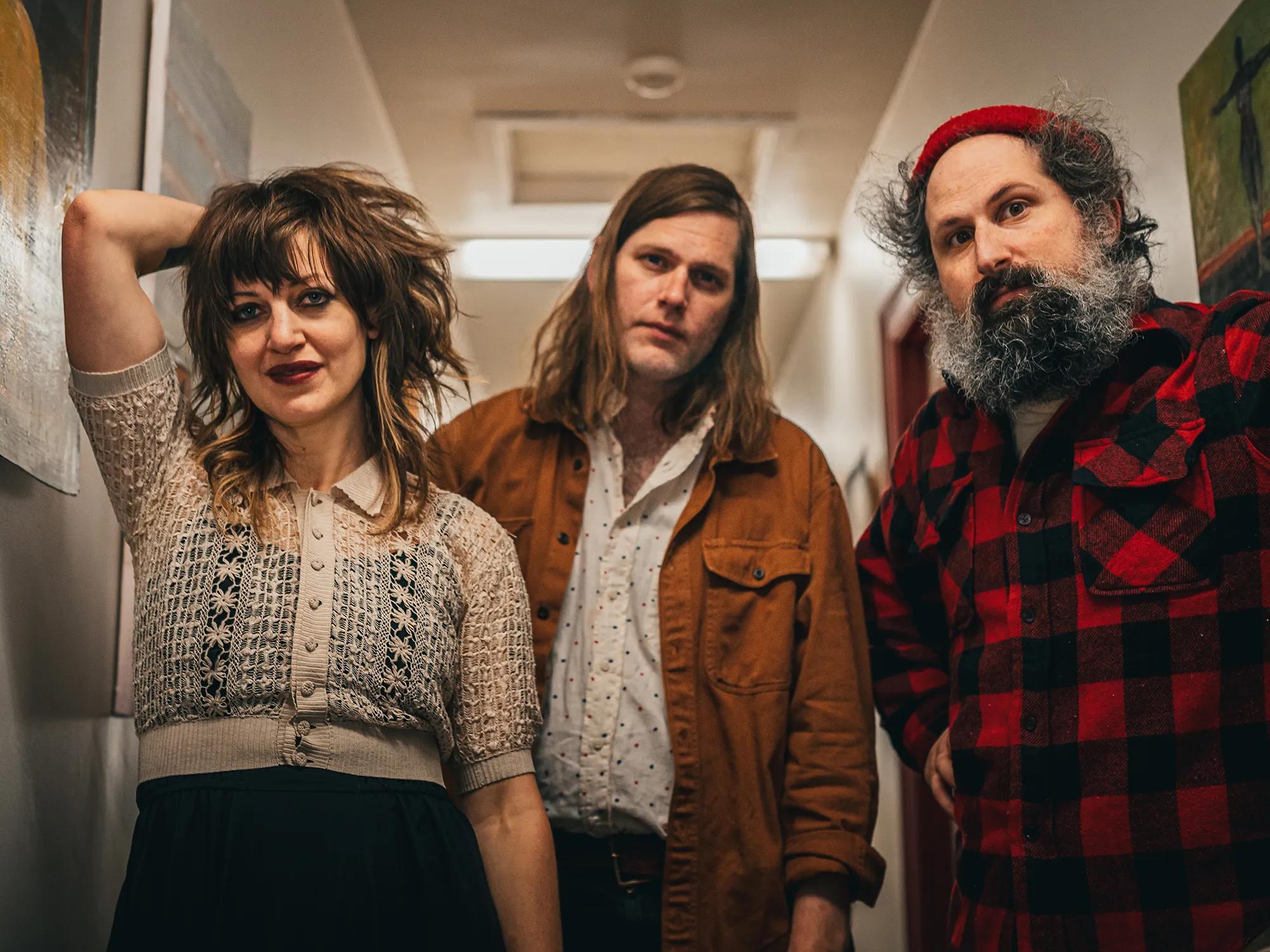Bonny Light Horseman lovingly embrace traditional folk music at The Sinclair

Sweaters. So many sweaters. The knit garments and unkempt hair of much of the audience members suggested an easygoing, free-spirited crowd. These were the fans that had come to see Bonny Light Horseman perform on December 13th at The Sinclair. As evidenced by their fashion choices, the audience had come for a show that was decidedly folksy, and all the better for it.
Before folk music took over, however, Cassandra Jenkins gave a brief opening set. Although she would have benefited from a full band at certain points, the minimal performance still offered an often hypnotic atmosphere. “Ambiguous Norway,” for instance, saw Jenkins ditch her guitar for a synthpad loop and a string of bells. As she gingerly shifted the bells over her fingers, she sang with her eyes closed, “You’re gone, you’re everywhere.” After the audience digested the gut-wrenching song in silence, Jenkins quipped, “Any questions?” She used similar humorous asides throughout, including a comment about her Amtrak delay earlier that day. Jenkins’ final song was the most memorable, however. “Hard Drive” offers an intro-monologue that is zany but still profound and self-aware, particularly when performed live. As the song built, Jenkins repeatedly returned to the theme of one’s heart being put back together on the count of three. Ultimately, Cassandra Jenkins’ humorous yet heartfelt delivery made for a gratifying listening experience.
Bonny Light Horseman then came on stage and the folk music commenced. The band recently released an album, Rolling Golden Holy, yet their setlist for the night turned out to be nearly a 50/50 blend of old and new. The band is a trio consisting of Anaïs Mitchell, Eric D. Johnson, and Josh Kaufman. Anaïs Mitchell is best known as the creator of critically acclaimed musical Hadestown, while Eric D. Johnson is frontman of the folk rock band the Fruit Bats. Josh Kaufman also has a strong solo career, having worked with Bob Weir of the Grateful Dead as well as The National. Each member of Bonny Light Horseman already boasts their own impressive and distinct backgrounds in music – yet when the three musicians bring their skills and passions together, something wonderful happens.
The band sometimes seems like a meticulous yet also playful take on traditional folk music. This genre is ambiguous, but some would say that the genre makes frequent use of lyrics or a melody that has been passed down over many years. Although the writer or composer is often forgotten, the song lives on. The most obvious sign of this inspiration for Bonny Light Horseman was during their eponymous track. The song traces back to Irish traditional music, and includes notably dated lyrics:
“Oh, Napoleon Bonaparte, you’re the cause of my woe / Since my bonny light horseman
to the wars he did go / Broken hearted I’ll wander, broken hearted I’ll remain / Since my
bonny light horseman in the wars he was slain.”
Yet as Mitchell sang this refrain, the woes of hundreds of years ago cut deeper still. Her vocals were warm, welcoming, and – in this case – filled with grief.
Whenever Mitchell was joined by Johnson on vocals, their musical chemistry was obvious. In several songs, including “The Roving” and “Summer Dream,” the vocal harmonies struck by Johnson and Mitchell were stunning. The two struck a unique balance wherein their voices joined together without losing any characteristic nuances. Johnson’s steady, clear notes and Mitchell’s earthy tones were always present in parallel. Even when one simply passed off the vocal part to the other, their transitions had the smooth and effortless quality of two people who are seasoned musicians but also good friends.
Then there was the instrumentation. During songs like “Bonny Light Horseman,” the harmonica became an otherworldly tool. As Johnson leaned towards his mic, both hands on the harmonica, the sound of the small wind instrument seemed to throb, as if Johnson had mastered some sort of vibrato technique. In the very same song, the band also included electric guitar solos, which the audience adored. Kaufman, with his wild hair and elbows sticking out through torn sleeves, demonstrated undeniable guitar chops. Then, during the upbeat “Sweetbread,” off the new album, the group embraced more of this rock approach, and Kaufman’s guitar parts took center stage. “That was fun,” the band members laughed afterward. The cheering audience seemed to agree.
The band also emphasized that this felt like something of a hometown show. In “Magpie’s nest,” Johnson sang, “I’ve wandered through Kerry, I’ve wandered through Clare / From Boston down to Jersey, from there to God knows where.” Although the original song lyrics only take place in locations throughout Ireland, the band’s personal twist on the lyric was met with enthusiastic whooping from the crowd. Building on the established connection to Boston, Anaïs Mitchell launched into anecdotes about her time living here as an 18-year-old in 2000. She fondly recalled scraping paint off of her house in Dorchester, taking the Green line to meet a boy she was seeing at the time, and even playing guitar on the Red line.
Technical prowess and Boston connections aside, at the core of Bonny Light Horseman’s performance was the warmth and familiarity of human experiences – There was the ripping grief of loss during “Bonny Light Horseman.” Then, there was the recklessness of putting one’s heart on the line during “Deep in Love.” During the last song of the show, “Summer Dream,” the band expressed the bittersweet nostalgia of wanting to reach for someone from the past. With an expert touch, Bonny Light Horseman used their striking chemistry to evoke the most basic and universal feelings through tradition-inspired folk music.